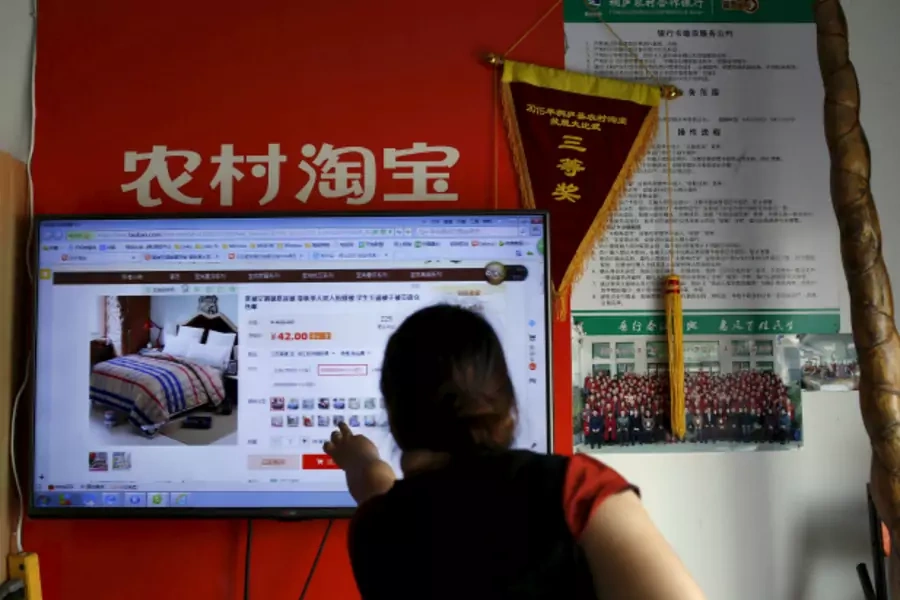The Benefits of Trade Have Not Been Equitable. Digital Commerce Can Change That

More on:
Joakim Reiter is the former deputy secretary general of the UN Conference on Trade and Development.
Trade, and its phenomenal expansion in the last two decades, has been decisive for lifting more than one billion people out of poverty. Yet, judging from the current debate on global trade, this basic fact seems to have been forgotten. Even some Western democracies, traditionally the biggest proponent of trade, seem increasingly lukewarm—in a few cases, reluctant—to keeping their borders open to goods and services.
Trade skeptics argue the benefits of trade have not been equitable. They have a point. Though some consumers have benefited, large companies have gained the most from global integration, and account for the vast majority of world trade. Small and medium enterprises (SMEs), women and rural communities have often been less fortunate.
However, the imbalance is not due to excessive globalization. On the contrary, those on the margins have not been able to benefit because they lack the capacity to fully participate in global trade.
The internet and digital technologies are game-changers.
Digital trade, or e-commerce as it is usually called, is growing rapidly. Estimates show that in 2015 it amounted to a staggering $22 trillion. Rich nations are leading the way, but others are not far behind. In China, over 400 million people participate in e-commerce—ten times more than in Germany. The value of all goods traded on China’s Alibaba has, in the last four quarters alone, been equivalent to the GDP of my home country Sweden.
Far more companies, especially SMEs, have also become exporters through internet-based trade, almost accidentally. According to eBay, some 95 percent of the U.S.-based SMEs that sell their products on eBay’s platforms have ended up exporting their merchandise. Of these, the majority of SMEs exported their products to four or more continents. These companies have also faster growth and survival rate than the national average, even higher than for traditional exporting enterprises.
The lack of borders on the internet makes it easier to overcome the many borders and other hurdles that still apply to physical trade. And this is true for trade between countries, and equally true for trade within countries, which matters a lot. Increased productivity and employment opportunities in rural areas though domestic trade creates more equitable societies, reduces unsustainable pressures for urbanization, and combats poverty. The former pig-farming village of Dong Feng in China is an excellent example. In 2006, a young village entrepreneur established an online store to sell furniture, inspired by Ikea. Within four years, furniture production had boomed and, with it, cotton refinement as well as three hardware stores, fifteen logistics and distribution companies and seven computer stores. Today, the village and its surroundings host no less than 400 online stores that sell merchandise within China and abroad, to a value of $50 million annually.
What is more, e-commerce is already leaving its mark on global trade. Since the 2007 financial crisis, world trade has struggled to recover. In fact, if trade continues on its current trajectory for the next few years, this decade will have had the slowest pace of trade growth measured since World War II. There are, however, a few exceptions to this generally bleak picture. Business to consumer e-commerce is growing at double-digit rates and show no signs of slowing down.
Thanks to internet-related trade, there is an enormous opportunity to make tomorrow’s trade more inclusive and to break the current pattern of slow overall trade growth.
But there is much to do to fully tap this potential. The gaps between rich and poor citizens, communities and countries are still large when it comes to readiness for e-commerce. Whereas 70 percent of consumers in United Kingdom have bought things online, only 5 percent of consumers have done so in a number of emerging economies. And it is even less among consumers in the poorest countries.
Countries should take a number of actions to build a business environment that better utilizes the internet and mobile communications, especially in rural communities and poorer countries. They should, among other things, adopt policies that foster competitive ICT-infrastructure, efficient payments solutions, modern customs, and adequate legislation on consumer protection and data.
It is doable. And the good news is, when the right conditions are in place, leapfrogging is possible. M-Pesa, the mobile-based money transfer system, has succeeded to revolutionize financial inclusion, especially in Kenya. Digital solutions can bring significant benefits to far more people and far more cost-efficiently than in past. And the benefits are not limited to ICT-services, or even services at large, but also play a critical role for the future of manufacturing and agriculture.
Global e-commerce is in its infancy, but it is already altering how countries trade with each other. It is making traditional hurdles such as geography, size and capital-endowments far less relevant for a country’s successful integration into world economy. It offers both new growth prospects and more inclusivity from trade. Putting serious efforts in unleashing its full potential is a no-brainer.
More on:
 Online Store
Online Store